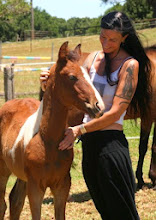Conclusions

Can Wildwood Gate stand as a community of interest against the rigors and diversity of current academic definitions?
Some researchers feel the nature of virtual community as defined by topic of interest can be a trans-national, trans-cultural phenomenon that is essentially antithetical to the notion a public sphere and that re-conceptualization of community is necessary in order to define these online, virtual forums. (Fernback & Thompson 1995) Other researchers’ feel that the definition of ‘space’, the ‘somewhere’ required for online members to meet, is what needs redefining in order to view online interest groups as communities. (Gotved 2002)
Still other authors focus on the virtues of online communities, purporting they offer benefits not found in face-to-face communities. Each have their own characteristics, advantages and weaknesses. (Etzioni & Etzioni 1997) These ‘advantages’ include bonding and information exchange independent of proximity either spatial or temporal.
Communities can evolve across national borders and time zones. They can encompass individuals who are homebound because of illness, age, or handicap. They are safer--a major consideration in many cities. Online discussion groups or forums can accommodate many more individuals …and online communities have much stronger memories. Finally, people can explore new relationships or even new identities online. (Etizoni & Etizoni 1997)
Rheingold uses a biological metaphor to define community within cyberspace, likening them to the colonies of organisms that grow in a petri dish.(Rheingold 2000)Yet no one of the material studied thus far take into consideration a deeper definition of our perception of reality and existence itself as a determinant of online experiences.
The world of the Internet constitutes a space complete with metaphors that support spatial dimensions—we ‘talk” in chat rooms, we ‘visit’ sites, we ‘surf’ the net on waves that swell the information ecology. (Falconer 2005b) For those who participate, cyberspace is a place where community can develop over time. Wildwood Gate takes such concepts of ‘spaces’ step further.
“Reality’ for Wildwood Gate members necessitates quotation marks. They view the notion of “reality’ as consisting of the ‘seen’ and the ‘unseen’ real. For them, as for traditional shamans throughout all times and all cultures, there are ‘other’ realms of accessibility besides the three dimensional world.
“By ‘realms of accessibility’ I mean realms or places that are other than physical. They are not perceived by the five senses at the perimeter of your circle, but are accessed only …through the doorway of your centre.” (Ly de Angeles 2000)
This ‘doorway’ has been explored by many researchers in the fields of physics, phycology, and PSI or psychic phenomenon. Recent studies in quantum physics support a new paradigm regarding the nature of reality, space, time and consciousness.
If real is what you can feel, smell, ste and see, then 'real' is simply electrical signals interpreted by your brain. (Wachowski, Wachowski, & Silver, 1999)
Science or fiction?
All information we gain is interpreted from electrical signals in the brain. The brain can not distinguish between information that is received empirically, inspirationally, as a hallucination, as a stored memory or artificially activated by electrodes. (Dispenza, 1999) Because the brain can not differentiate between these sources of information, our interpretations of reality are wholly subjective. (Falconer 2005b)
Individuals placed in sensory deprivation chambers begin to hallucinate and synthesize entire inner realities. When the human mind is cut off from the so called physical world, it has a remarkable ability to create its own—trees, people, sounds, colors and smells. The entire physical universe itself is nothing more than patterns of neuronal energy firing off inside our heads. (Talbot, 1993)
What physicists are finding on the sub-atomic level (the molecular building blocks that make up our macro ‘reality’), supports the notion that imagined space is as ‘real’ as the computer desk one might be sitting at. Quantum interconnectedness demonstrates that separateness is an illusion and that in the sub-atomic landscapes all semblance of location breaks down—replaced by ‘superposition’ and ‘probabilities’. (Talbot, 1993) What our brain tells us is ‘space’ is, on the quantum level, one seamless and fundamental unity. On the subatomic level, there is no ‘out there’, only consciousness. (Falconer 2005b)
Wildwood Gate’s online forum is another aspect of the Covenant of Wildwood Gate itself. Both ‘places’ exist in both a non-corporeal domain, as the gateway to ‘other realms’ and as a physical one where meetings and ritual celebrations take place. Members make NO distinction between the two and the community that they form, on line and off maintains its integrity.
Ultimately for Wildwood Gate members, like for the hero of the Matrix, ‘there is no spoon’. There is no concrete distinction between the seen ‘real’ and the unseen ‘real’. To say their online forum does NOT constitute a community consisting of place, shared interests, growing and evolving relationships, trust and compassion, violates both traditional and non-traditional definitions of the word. For them, the online world of Wildwood Gate is ‘just another realm of accessibility.’
Please participate here with comments on the conclusion. Does it make sense to you? Do you think an understanding of ‘reality’ as perceived by different groups of people is essential for defining terms like ‘space’ and ‘online community’? What do you think is REAL?


2 Comments:
This is a well written case study. you make your points very clearly and support them very well.
This is a strong, well supported conclusion. Maybe it all comes down to the last paragraph, a sort of I-think-therefore-I-am logic.
We think its a community therefore it is a community, and who would dare say otherwise.
Thanks for that. I was worried about word count being too long and concepts too waffly. I’m glad you found it clear.
Dean, you said a sort of I-think-therefore-I-am logic. to community and I just slapped my hand to my forehead!
Guess who I am studying this week in Phi130? I must be totally influenced at this point!
;) Kim
Post a Comment
<< Home